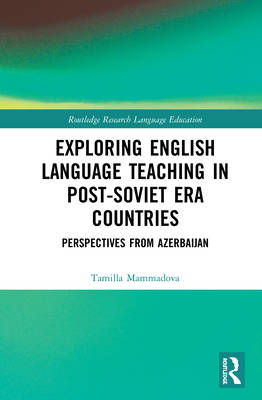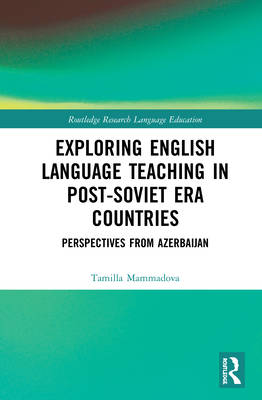
- Retrait gratuit dans votre magasin Club
- 7.000.000 titres dans notre catalogue
- Payer en toute sécurité
- Toujours un magasin près de chez vous
- Retrait gratuit dans votre magasin Club
- 7.000.0000 titres dans notre catalogue
- Payer en toute sécurité
- Toujours un magasin près de chez vous
Exploring English Language Teaching in Post-Soviet Era Countries
Perspectives from Azerbaijan
Tamilla Mammadova
320,95 €
+ 641 points
Format
Description
Exploring English Language Teaching in Post-Soviet Era Countries analyses different elements of English language teaching from the Soviet era to a new era of Westernized tendencies.
Spécifications
Parties prenantes
- Auteur(s) :
- Editeur:
Contenu
- Nombre de pages :
- 162
- Langue:
- Anglais
- Collection :
Caractéristiques
- EAN:
- 9780367480318
- Date de parution :
- 02-10-20
- Format:
- Livre relié
- Format numérique:
- Genaaid
- Dimensions :
- 155 mm x 236 mm
- Poids :
- 544 g

Les avis
Nous publions uniquement les avis qui respectent les conditions requises. Consultez nos conditions pour les avis.






